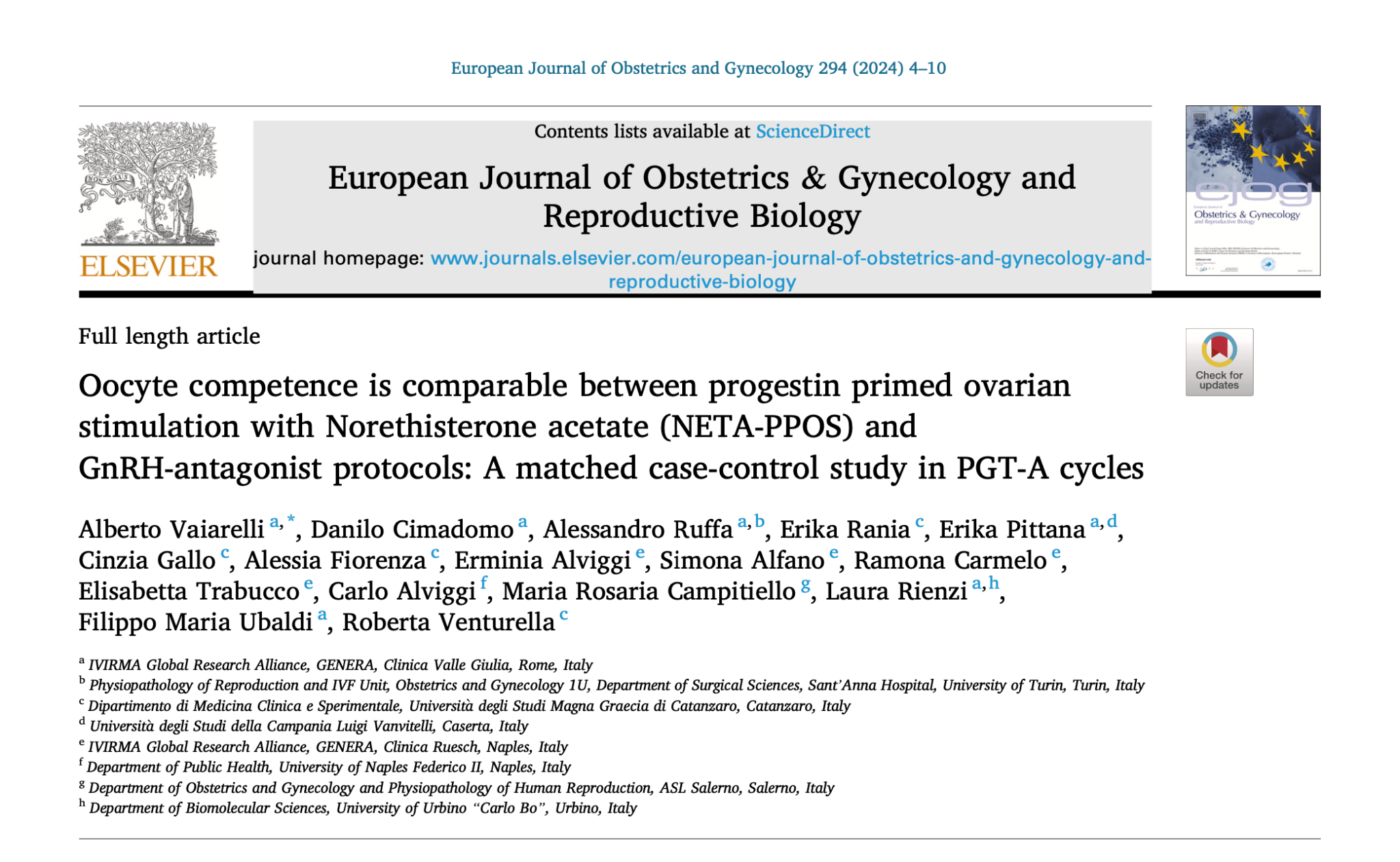
Alberto Vaiarelli, Danilo Cimadomo, Alessandro Ruffa, Erika Rania, Erika Pittana, Cinzia Gallo, Alessia Fiorenza, Erminia Alviggi, Simona Alfano, Ramona Carmelo, Elisabetta Trabucco, Carlo Alviggi, Maria Rosaria Campitiello, Laura Rienzi, Filippo Maria Ubaldi, Roberta Venturella
European Journal of Obstetrics and Gynecology, Published: December 25, 2023 https://doi.org/10.1016/j.ejogrb.2023.12.035 – VOLUME 294, P4-10, MARCH 2024
Abstract
Objective
Study design
Retrospective matched case-control study involving advanced-maternal-age women undergoing ICSI with PGT-A. 89 NETA-PPOS were matched with 178 control patients based on maternal age and ovarian reserve biomarkers. Both groups underwent recombinant-FSH OS with GnRH-agonist ovulation trigger and collected ≥1 MII. In the study group, NETA (10 mg/day) was administered orally starting from day2 of the menstrual cycle. Euploid blastocyst rate per cohort of metaphase-II oocytes (EBR per MII) was the primary outcome. All other embryological and clinical outcomes were reported. Gestational age, birthweight and length were also assessed.
Results
Conclusions
Oocyte competence after NETA-PPOS and standard OS is comparable. This evidence is reassuring and, because of its lower cost and possibly higher patients’ compliance, supports PPOS administration whenever the patients are indicated to freeze-all (e.g., fertility preservation, PGT-A, oocyte donation). More data are required about follicle recruitment, oocyte yield, gestational and perinatal outcomes. Randomized-controlled-trials are advisable to confirm our evidence.
Keywords
- Progestin primed ovarian stimulation
- Inhibition of ovulation
- PPOS
- GnRH-antagonist
- Oocyte competence